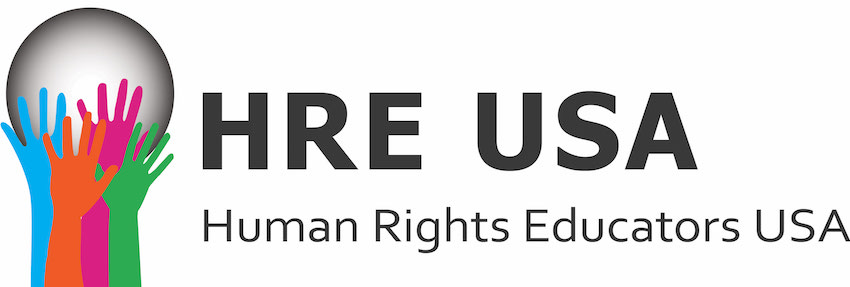The right to health is fundamentally interrelated to other human rights, including the right to social security, the right to rest and leisure, and especially to the right of an adequate standard of living. And violations of other human rights can have serious health consequence (e.g, harmful traditional practices, human trafficking, torture and inhuman treatment, and violence). Health is also an economic and political issue for inequality and poverty lie at the roots of much sickness and disease. According to the 2005 World Health Report of the World Health Organization (WHO), poverty is the primary cause of death worldwide.
Article 25 of the Universal Declaration of Human Rights (UDHR) articulates the right to adequate health:
Everyone has the right to a standard of living adequate for the health and well-being of himself and of his family, including food, clothing, housing and medical care…
While the language varies among UN human rights documents, three key concepts arise regarding health and human rights:
1. States have the responsibility to guarantee their citizens the right to adequate health. When for whatever reason they are unable to do so, the international community must assume that responsibility.
2. States have the responsibility to ensure that none of their citizens is deprived of this right by state action.
3. These rights are guaranteed to all citizens, regardless of race, religion, gender, age, social standing in the community, or other status.
Unlike civil and political rights, which restrain the state from denying citizens their rights such as freedom of speech and religion, social and economic rights such as the right to health oblige the state to take action to ensure citizens’ rights.
Defining Health
Article 25 guarantees that all citizens should enjoy an adequate standard of health and recognizes food, clothing, housing, health care and social services as essential components of a standard of living adequate for health and well-being. But what constitutes an “adequate standard of living”? Different states have vastly different economic and social histories and capacities to deliver these services. Article 12 of the International Covenant on Economic, Social and Cultural Rights (ICESCR, 1966) defines the right to adequate health in a relative fashion that acknowledges this disparity among states: “… the right of everyone to the enjoyment of the highest attainable standard of physical and mental health.” However, in many poor countries the “highest attainable standard” does not need its citizens minimum health-related needs (i.e., vaccines, physical therapies, geriatric care), and they suffer disproportionately from diseases that are routinely preventable or curable.
Increasingly human rights document are using a more inclusive definition of the right to health for different segments of the population, most notably children and women. For example, the Convention on the Rights of the Child (Children’s Convention, CRC, 1989), has some powerful provisions, regarding child health, including provisions for children with disabilities (Article 23), the rehabilitation of children in armed combat situations (Article 39), and state support when parents cannot care fully for children’s welfare (Articles 19 & 20).
Included in this broader understanding of health are topics such as mental health, obesity, alcohol, drugs and tobacco, and the roles of the media and health education.
Violating the Right to Health
Other factors such as a person’s race, sex, religion and social standing can affect his or her ability to enjoy the right to health.
- Indigenous peoples and racial and religious minorities are often denied access to healthcare facilities, sometimes as a matter of practice rather than policy.
- Poor people in both developed and developing countries often cannot afford healthcare. They frequently must live in areas where substandard sanitation and water threatens their health.
- Rural people may not have access to health facilities.
- The very young and the very old are especially vulnerable to the effects of poor health care and are often unable to protest when their rights to care are violated.
- Women’s special health needs, especially related to child bearing, are often neglected or denied.
- Gays, lesbians, bi-sexual, and transgender people may face inadequate or discriminatory care.
- People with disability may be limited by attitudes that try “cure” rather than accommodate their disability or even be given up as “hopeless” and denied all treatment.
To deny someone health care is to deny or threaten all that person’s other rights. Without health, he or she is denied the right to be a contributing member of the community, to realize his or her full potential, and to provide for their families.[1]
Related Human Rights Documents
- Universal Declaration of Human Rights (UDHR, 1948): Article 25: Everyone has the right to a standard of living adequate for the health and well-being of himself and of his family, including food, clothing, housing and medical care…
- International Covenant on Economic, Social and Cultural Rights (ICESCR, 1966): Articles 7.2.b, 10, and 12: Guarantees all workers the right to health care and to safety as well as protection of employment during maternity leave.
- International Convention on the Elimination of All Forms of Racial Discrimination(CERD, Race Convention 1966): Article 5: Reaffirms the universal protection of the right to adequate health and proscribes deprivation or rights based upon race.
- Convention on the Elimination of All Forms of Discrimination against Women(CEDAW, Women’s Convention,1979): Articles 10.h, 11.d, 11.f, 12, and 14.b: Recognizes that women’s health needs differ from men’s, and details the special protections and considerations due to women.
- Convention on the Rights of the Child (CRC, Children’s Convention, 1989): Articles 3, 6, 13, 17, 19, 20, 23, and especially 24: Details a child’s rights to health from many different perspectives.
- Convention on the Rights of Persons with Disabilities (CRPD, 2006): Article 25 – Health
[1] For a more detailed discussion of the right to health, see Understanding Human Rights: Manual on Human Rights Education, p. 147: http://www.etc-graz.at/typo3/fileadmin/user_upload/ETC-Hauptseite/manual/versionen/english_3rd_edition/Manual_2012_FINAL.pdf.
